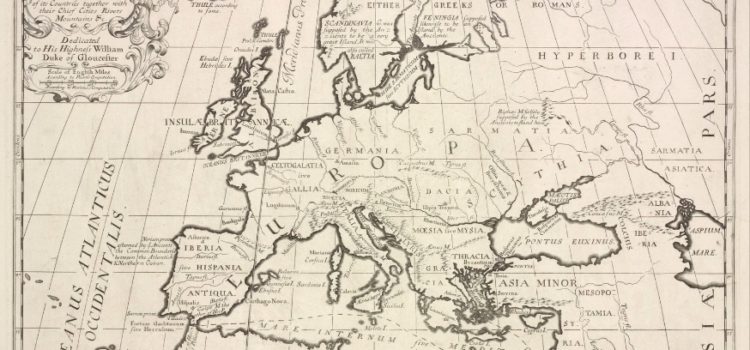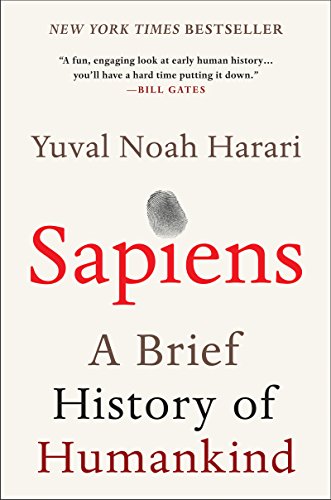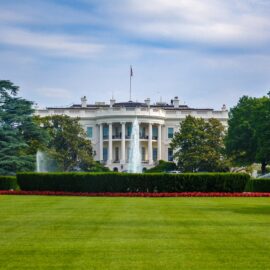

This article is an excerpt from the Shortform summary of "Sapiens: A Brief History of Humankind" by Yuval Noah Harari. Shortform has the world's best summaries of books you should be reading.
Like this article? Sign up for a free trial here .
What spurred the Age of Imperialism? How was European imperialism also a quest for knowledge?
European Imperialism began in the 18th century as Europeans set sail to conquer new lands. The Age of Imperialism was driven by a combination of national pride, greed, and genuine curiosity.
We’ll cover how European Imperialism began, why the Age of Imperialism was dominated by Europeans, and how it changed the world.
European Imperialism
As we know, those in power rarely seek knowledge for knowledge’s sake. As Europeans set out to conquer the world in the 18th century, imperialism and the Scientific Revolution became not only inseparable but indistinguishable. Expeditions had the dual purpose of colonizing new territories and making scientific discoveries, and each goal aided the other.
Before we explore how science and empire tied the knot, we need to ask a crucial question: Why were the Europeans the ones who took over the world? This will help us understand European imperialism.
European Dominance
Cortes only had 550 men. Yet he managed to conquer an empire of millions, the Aztecs. Similarly, England was a tiny, inconsequential island in the 18th century, yet Captain Cook’s arrival in Tasmania led to the near-extermination of Tasmania’s native population, who were hunted and driven off the land by the new settlers. Although it seems almost inevitable in hindsight, it wasn’t obvious that England would defeat Tasmania. How did Europe, such a tiny part of the world, come to dominate it? Prior to Cook’s expeditions, Britain and western Europe were negligible influences on the world stage.
Asia was the more likely world power. The Ottoman Empire, Safavid Empire, Mughal Empire, and the Ming and Qing dynasties were all extremely powerful. Asia accounted for 80% of the world’s economy in the late-18th century. Until 1850, the military strength of Asian and European nations was relatively equal: there was no significant scientific, military, or technological gap between the two.
Europeans rose to dominance only when they conquered Asian territories in a series of wars between 1750 and 1850. Scientific and technological gaps started to appear, and almost as soon as they appeared, they widened. This would lead to the Age of Imperialism.
For example, commercial railroads opened in 1830, and by 1850, there were 25,000 miles of railroads in the West, but only 2,500 miles in all of Asia, Africa, and Latin America. China’s first railroad, built by Europeans, didn’t open until 1876, and the Chinese destroyed it a year later. The European embrace of new technology contributed to European imperialism.
Why did it take the East so long to catch up to the West? Just as Easterners hadn’t understood the militaristic importance of gunpowder when they accidentally invented it, Eastern leaders didn’t see how new technologies were going to serve them. While Westerners accepted their ignorance and started to believe in the idea of progress, Eastern rulers clung to their power and strove to maintain the status quo.
In contrast, European nations could more easily follow the lead of countries like England because they shared common values, myths, and sociopolitical structures (more on these, below). Asian empires lacked these common myths. The two ideological advantages that the West had over the East were science and capitalism. We’ll continue exploring science’s role in European imperialism below.
Today, almost all humans dress like Europeans, eat like Europeans, think like Europeans, speak like Europeans, and listen to music influenced by Europeans. We are products of European culture no matter where we live.
Age of Imperialism: Science and Empire, Hand in Hand
Science provided European imperialists with many practical advantages: They could navigate the seas with more accuracy, conquer lands with advanced weapons, and keep themselves and their new subjects alive with medicines to cure the diseases of newly conquered lands. But more importantly, science gave imperialists the “ideological justification” they desired to continue invading the territories of other nations.
Three Ideological Justifications of European Imperialism
#1: Science operated on the belief that new knowledge is always a positive thing to have and a good in and of itself. Following this logic conquering foreign lands must also be a good thing since it allows for the discovery of new knowledge.
#2: Science spread benefits such as improved medicine, education systems, and railroads. So imperialists were altruistically serving the people they conquered by improving their lives with the progress and prosperity that comes with science.
#3: Science said that Europeans were the superior race due to the (questionable) evidence that Aryans were the original speakers of the “pure” language that spawned all the Indo-European languages. Combined with the theory of natural selection, they theorized that Aryans must have intermarried in India and Persia and lost their work ethic and rationality. Only Aryans in Europe remained pure. Therefore, European imperialists had the right and duty to rule over other races.
In this way, European imperialism was built on the rationalizations of “science.” Other empires lacked the science that provided both the practical means and the justification to conquer new lands.
The Power of Ignorance to Build Empires
As mentioned above, science gave European imperialism practical advantages, but these advantages weren’t huge. Later, modern science would bring empires huge technological advances such as machine guns, canned food for soldiers, railroads, medicines, and the atomic bomb. But in the beginning of Europe’s imperial dominance, what gave European empires the edge was the fact that scientists and naval officers both admitted their ignorance and shared the desire to make new discoveries. Scientists admitted they didn’t know everything about plants, animals, and the stars; officers admitted that they didn’t know every land on earth. Both had an insatiable drive to fill these gaps in knowledge, and both believed that with knowledge came mastery.
Although this thirst for knowledge seems natural to us now (in large part because we are the descendants of this mindset), it was unlike any imperial attitude in history. The Arabs, for example, believed they knew everything there was to know about the world. They didn’t conquer Spain, Egypt, or India to learn more. They conquered these nations to spread their own knowledge rather than gain new knowledge.
Prior to the 15th century, many Europeans had the same attitude. Empires created and used world maps that were full of detail, even when those details weren’t actually known to be true. Whatever a mapmaker didn’t know, he’d make up. Rulers and the mapmakers they employed weren’t willing to acknowledge their ignorance.
Christopher Columbus’s Ignorance of His Ignorance
Although we think of him today as the “discoverer” of America, Christopher Columbus falls in with the old guard of Europeans unwilling to acknowledge the ignorance of his times.
When Columbus reached what we now call the Bahamas in 1492 and named the people he found there “Indians,” it was because he believed he had reached what we now call the East Indies or the Indonesian archipelago. Columbus stuck to this claim for the rest of his life, even when, in 1502, Italian Amerigo Vespucci argued that the discovered area was a land previously unknown to Europeans and the Scriptures. It was unfathomable to Columbus and most of his contemporaries that there could be an entire continent completely unknown to Europeans and the Bible.
But the prevalence of this attitude soon started to wane. In the 15th and 16th centuries, Europeans started making maps with empty spaces, rather than filling unknown areas with false details or imaginary monsters. It showed they admitted their ignorance of the world. Further, the gaps in the map provided ambitious explorers the motivation to fill them. This spurred European imperialism.
The discovery of this new continent jump-started the Scientific Revolution. It showed Europeans their ignorance about the world and demonstrated the occasional need to trust observations over Scripture. It also motivated Europeans to conquer these previously-unknown lands, and in order to do so, they needed to collect data on the geography, climate, plants, animals, and cultures of the Americas. They needed science to better prepare them to rule strangers. They established global empires and trade networks that brought isolated civilizations together. This was also when disparate cultures started to merge, forming a single worldwide society.
Even when non-European empires like Ottoman, the Mughal, and the Chinese were aware of the lands Europeans were “discovering,” they weren’t interested in conquering faraway lands themselves. What set European Imperialism apart from Asian kingdoms like the Ming dynasty is that Europeans had the ambition to conquer. Because North and South America were open playing fields, Europeans got all the wealth and resources of these lands, which allowed them to go back and invade parts of Asia, too.
———End of Preview———

Like what you just read? Read the rest of the world's best summary of "Sapiens" at Shortform . Learn the book's critical concepts in 20 minutes or less .
Here's what you'll find in our full Sapiens summary :
- How Sapiens outlived and outlasted the 8+ other human-like species on Earth
- The 3 critical revolutions in human existence that led to our domination of the planet
- How much of what powers our world today is really just a shared mass delusion
- What the future of humanity might look like






